#moffat edits
Explore tagged Tumblr posts
Text
The greatest injustice ever faced is that I almost certainly started the still thriving "clown husbandry" tag on here, but any discussion about it (from a know your meme page to a youtube video with 500k views) says it's a joke of "unknown origin" or credited to this post, likely bouncing off of mine (which was actively circulating at the time with like 30k notes):

This is a tragedy for many reasons, most of all because it wasn't just an offhand joke but actually a direct response to some of the funniest online hate I ever got:


They're erasing the truest history of tumblr: its desperate need to seethe and argue over every obvious joke with more than 10 notes.
anyways here is the canonical pet clown. according to me

#but tumblr... i am pagliacci#clown husbandry#look strange aeons on youtube. i know you browse this tag.#I don't respect your 2011 tumblr core take on steven moffat#but I will forgive it when you right this wrong#EDIT: a few people think i'm saying i originated the concept of referring to a clown like an animal#i didn't. i mean i made this really specific joke about exotic animal husbandry and a lot of mutuals bounced off of it with similar jokes#and that's what people started tagging 'clown husbandry'#to this day when you look for the origins a lot of mutual's names (who also kept chickens/pigeons/reptiles/etc) pop up because of this#talking tag
13K notes
·
View notes
Text
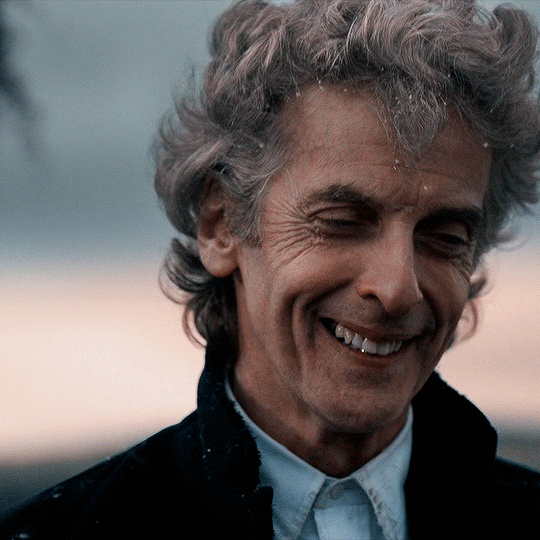

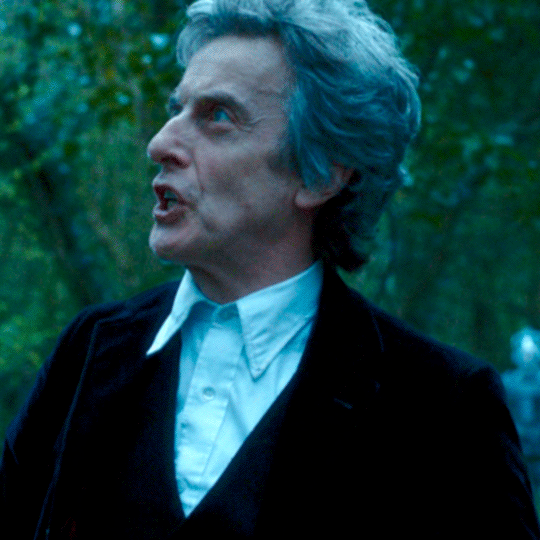
twelve + smiling [S8 / S9 / S10]
#doctor who#twelfth doctor#userangelic#usertennant#usercy#usermulder#usertoph#12th doctor#peter capaldi#dwedit#moffat era#moffatedit#dwgifs#timelordgifs#riotgifs#twelve plus edits#twelve#idk I just love him ok#monks social road came on and this was rotting in my drafts so!!!!!!#I love you forever and ever and ever and ever and ever and
2K notes
·
View notes
Text
We need more weird historian rep in Doctor Who. The companions are too normal when faced with the prospect of time travel. I want a companion who makes a list of super specific historical destinations related to their dissertation. I want somebody whose first reaction to finding out that the Doctor is a time travelling alien is to create a Microsoft Word document and ask, “What caused the Late Bronze Age collapse?”
#i know ian’s a history teacher but i want a little freak working on their phd. caffeinated and sleep deprived and broke#i haven’t seen a ton of old who though so please let me know if someone does match this description#and my memory of most of moffat’s era is fuzzy at best#edit: BARBARA’s the history teacher i’m sorry i wrote and queued this at 3 AM#doctor who#whoniverse#original post
7K notes
·
View notes
Text
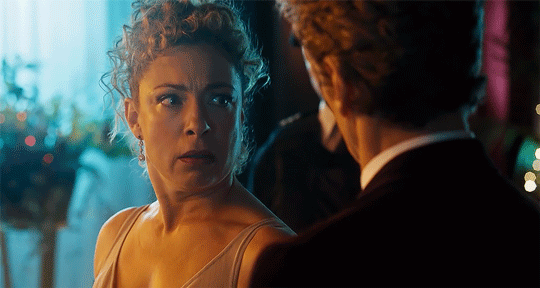
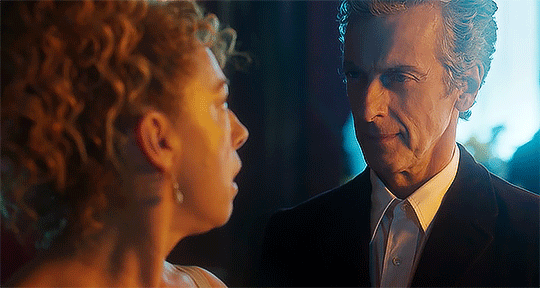
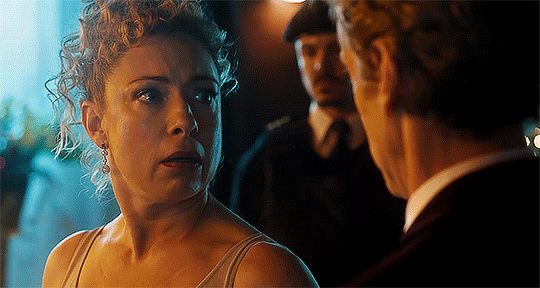
Doctor Who Christmas Special 2015: The Husbands Of River Song
#dr who#doctor who#twelfth doctor#river song#drwhoedit#dr who fandom#dr who edit#dwedit#peter capaldi#the doctor#fyeahdrwho#river x doctor#moffatedit#moffat era#christmas special#bbc dr who#alex kingston
1K notes
·
View notes
Text
Happy 20 years to modern Doctor Who. Here’s a little tribute I made using my favourite score from the show❤️🌈
#this took so long#I’m very tired now lmao#doctor who#new who#rtd era#moffat era#chibnall era#type: edit#mine
192 notes
·
View notes
Text
my magnum opus. i can officially die now. bye everyone.
this literally took me months to finish lol. i think you can tell where i got tired and just went whatev. and anyone who's known me long enough knows i love putting stuff in it so would be really going SQUEEEEEEEEEEE if someone figures it out 😋🙈
#doctor who#river song#doctor x river#eleventh doctor#twelfth doctor#tenth doctor#yowzah#doctorriver#dw#dwedit#moffat era#alex kingston#the doctor#david tennant#peter capaldi#matt smith#did you know that there’s a tunnel under ocean blvd#lana del rey#my edits#ten x river#eleven x river#twelve x river#the doctor x river song#the doctor's wife#nuwho#dr who#moffatedit#new who#i pond queue
226 notes
·
View notes
Text





Next time it's the 2024 Christmas special. We've got Nicola Coughlan, Everest, and a Steven Moffat script.
#doctor who#dwedit#doctorwhoedit#dw spoilers#doctor who spoilers#fifteenth doctor#ncuti gatwa#steven moffat#nicola coughlan#my edit
363 notes
·
View notes
Text
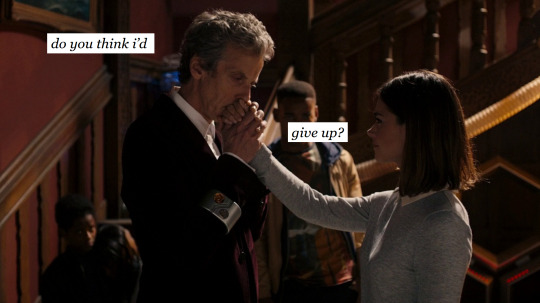



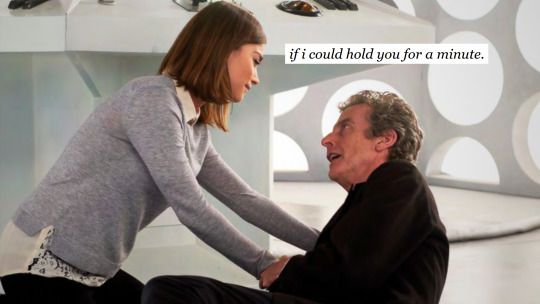
Hozier, "Francesca"
clara, my clara
#i am SO SO SO SO FUCKING NORMAL ABOUT THEM#so normal i swear#devotion so heavy and vast and unending that it survives death a hundred billion times over#all those skulls in the sea. all those billions of years#and not even being able to keep her? to remember her? moffat went for the jugular#and then for him to SHOOT A GUN#after we hear ten go “i never would. do you hear me? i would NEVER”#“do you think i care for you so little that betraying me would make a difference?” hey brb gonna go fly into a black hole if no one minds#rhrhsndgfdghmhghmhmhmgg throwing upppppppp#doctor who#dw#dw spoilers#clara oswald#peter capaldi#doctor who spoilers#jenna coleman#the twelfth doctor#the doctor#face the raven#hell bent#heaven sent#hozier#dw edit#doctor who edit#twelveclara
336 notes
·
View notes
Text



paul rudd via 👍
#paul rudd#lin manuel miranda#amy poehler#alex moffat#kristen wiig#will forte#snl 50#snl#lin manuel miranda ig#me edits
29 notes
·
View notes
Text
Doctor Who as a Post-Colonial Metaphor
Recently I've been thinking a lot about how beautifully Doctor Who reflects the state of post-colonial British identity, and tumblr seems like the appropriate place to share my ramblings. So let’s see if I can explain in a way that makes sense.
I must start by putting on my obnoxious little film degree hat and reminding everyone that sci-fi is one of those genres that is highly political (as most things are, but scifi even moreso). It turns out it's pretty easy to get a sense of people's fears and anxieties by asking them to envision the future, and that's what sci-fi media does; it uses contemporary cultural standards and ideas to create a vision of what futuristic/advanced science and technology might look like, and how people might respond to it. In doing so, it ends up taking the social and political temperature of the time and place in which it's created.
As such, it's very, very common for scholars to analyze sci-fi media through this lens; even Frankenstein, arguably the first science fiction novel ever written, is often interpreted as reflecting cultural fears regarding swiftly advancing science and technology during the early stages of the industrial revolution. The Day The Earth Stood Still (1951) is another great, very blatant example of how sci-fi and politics can interact. In this movie, a Jesus-like alien ascends to Earth during the Cold War to warn the human race about their imminent nuclear annihilation. It seems corny to us now, but it's actually a great movie and I would highly reccomend it. It's rumored that the US Department of Defense read the script and Did Not Like It because the themes were too anti-war.
In other words, despite often being viewed as too “pop,” too goofy, and too unserious to have any deep meaning, pretty much any scifi story can be analyzed within an inch of its life using a meta social/political lens. It's not the only way to interpret sci-fi, but it's by far the most common. One must simply ask, “what does this vision of science, technology, and/or the future say about us as we are now?”
But anyway. Doctor Who. Disclaimer: I haven't watched the classic series so I'll focus on 2005 onward (still post-colonial so it still holds up, lol). If you've seen Classic and you'd like to chip in, please do.
Genre-wise, Doctor Who is more-or-less a space-western, a subgenre of sci-fi that incorporates Western elements—exploring new frontiers, engaging with unfamiliar civilizations, rogue figures, etc. Star Trek is the peak example of this, but there are many, many others.
Of course, the Western genre is dripping with colonialism due to its historical setting of the American West, and the racist depictions of Indigenous peoples. Space-westerns, consequently, also tend to address colonial topics. Sometimes space westerns are just as racist as normal westerns, but sometimes they use the genre reflexively, to question colonial ideals. A more progressive space-western might be more willing to “humanize” the alien cultures they meet, asking questions like, "how does one ethically engage with foreign societies?" or "When is it appropriate to intervene in a conflict?" etc.
Althought these kinds of questions come up regularly in Doctor Who, especially regarding its anti-war messaging (Time War etc.). These themes become doubly interesting when you use them to inform your interpretation of The Doctor, both as a character and as a symbol.
Consider this: The Doctor is the embodiment of an ancient and immensely powerful being with a bloody history. Their kill-count is quite literally somewhere in the quadrillions. Although they are a self-proclaimed pacifist, they are still constantly a perpetrator of death and destruction throughout the series. The Doctor, despite repeatedly and loudly choosing peace, can never seem to keep their hands clean of chaos and suffering. Doctor Who is about an entity that destroys everything they touch, sometimes on purpose, sometimes not. As an allegory for grappling with the legacy of British imperialism, I'd say it's pretty on the nose.
In this sense, not only is Doctor Who a show about colonialism, it is also a show about identity in the wake of colonialism. It's even in the name: "Doctor Who?" Who is the Doctor? What is their responsibility to the universe? What does it mean to be ancient and powerful and drenched in the blood of millions? How do they move on, become better, without falling into the same traps? What does it mean to be British?
These questions come up over and over throughout the new series, from the destruction of Gallifrey, to the Timelord Victorious, to A Good Man Goes to War, the Flux (arguably), and many, many other smaller plotlines I could mention. Even in the latest series with Ncuti Gatwa, the focus on adoption and family is in a similar vein—where does the Doctor come from? What does it even mean to be “from” a place? How much do your origins truly contribute to who you are and who you become?
How the companions fall within this framework is also interesting; if the Doctor is a stand-in for the nation as an entity, then the Doctor's companion, the everyday British person, is the stand-in for the populace. The companions are ever-changing, ever-evolving, constantly renegotiating their relationship with the Doctor. The companion's ultimate challenge is to find how they fit into the narrative of the Doctor's life, and try their best to come out the other end with a happy ending (ha).
Of course, Doctor Who is owned by the BBC, meaning it is quite literally nationally subsudized TV. As a result, althought the show is actually VERY critical in some places, the Doctor is usually ultimately sympathetic; their good intentions tend to forgive a lot of the problems they've caused. The companion is usually charmed by the Doctors' seemingly endless tragedy of a life. This is a country's state-owned media company working with it's own self-image--it's inherently a work of self-reflection, and perhaps of self-obsession, too.
It would be easy to be cynical about Doctor Who as a product of the BBC, which is state-funded (but notably not owned or directly controlled by the government!). However, I tend to think that just writing it off as propaganda because of this is doing the show a disservice. Yes, there is an inherent privilege and self-centeredness to endlessly forgiving the Doctor, but that's also kind of the whole point; it's a show about coming to terms with one's horrible past. It's a show about learning to formulate a new sense of self. To demand that Doctor Who to be less self-obsessed, to not be about British identity when it is in fact a British show for Brits about Brits, is just a bit unrealistic.
Instead, I choose to believe that Doctor Who can and does use its privilege for good more often than not. The creators tend to be very progressive (as sci-fi so often is) and they can get away with a lot of very progressive messages in the guise of a silly sci-fi show for families. Most recently, I would point to s14e3: Boom, s14e5: Dot and Bubble as examples of thinly veiled rants about the evils of capitalism, war, racism, social media, etc. To ignore or dismiss Doctor Who because it has some form of institutional backing would be doing the actual stories and writers a disservice.
Finally, let me leave you with one last point; One consistancy throughout the new series that I find very charming is the positive effect the companions always have on the Doctor. Companions come and go, which is sad, but they're each special in their own little way, and they each change the Doctor, wearing them down a little at a time. The Doctor is consistently at their worst when they are alone, removed from the people that make them want to be better.
Very often the companion's parting message for the Doctor is "don't be alone.” This can be extrapolated to mean: don't forget we exist. Don't forget to be kind. Even if you can't help your legacy, even if you can't wash the blood off your hands, you can always keep striving to be better. Keep someone around to remind you to be better. And the Doctor, more often than not, does. Because ultimately it is the companions, us the people, that make the Doctor who they are.
It’s this special brand of relentless optimism, this indomitable belief in the goodness of people and the power of that goodness that always brings me back to Doctor Who, one way or another, despite all its flaws.
Edit 11/29: corrected some info about the BBC per the comments!
#once again pls classic fans chip in#I know I missed some points#and it could use editing expanding etc#but this is the gist of it#I just need to get it out#I love Doctor who 🥲#and I love sci-fi as a field#it’s so interesting#I wrote a college paper about bill and Ted’s excellent adventure it was great#doctor who#Peter capaldi#Matt smith#David tennant#jodie whittaker#chris eccleston#ncuti gatwa#RTD#russel t davies#steven moffat#chris chibnall#film analysis#media analysis#essays#essay#media criticism#colonialism#post colonialism#post colonial#media rants#my stuff
34 notes
·
View notes
Text
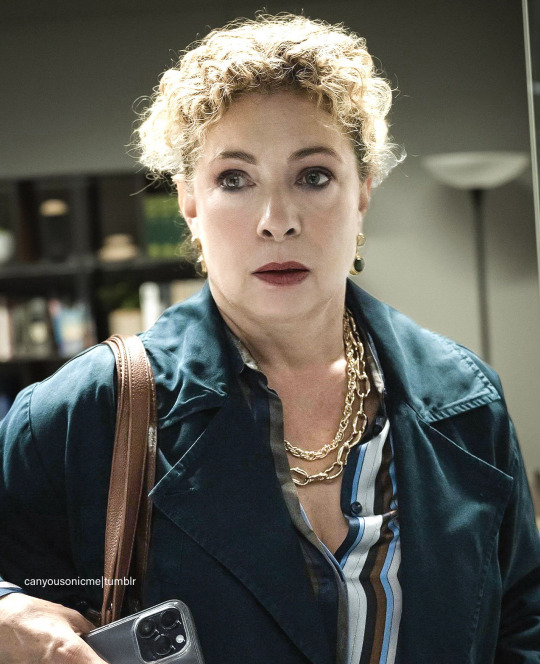
Alex Kingston in Steven Moffat's "Douglas Is Cancelled" on ITV 27 June, 2024 at 9 pm.
72 notes
·
View notes
Text
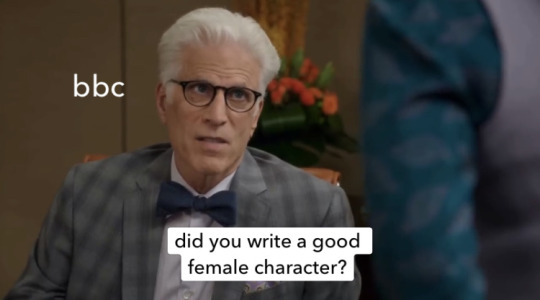
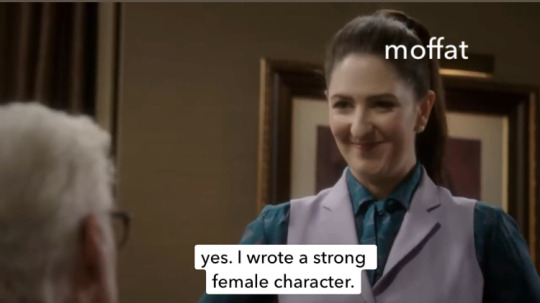
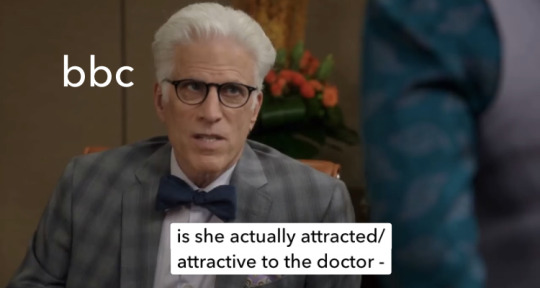
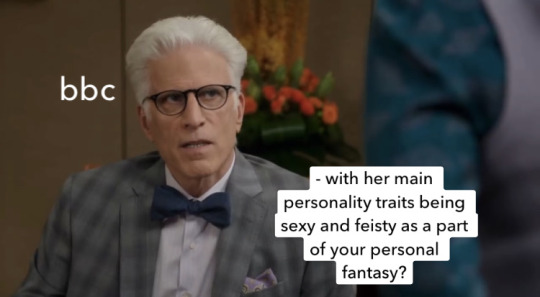
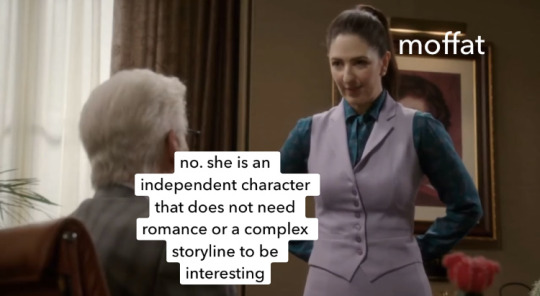
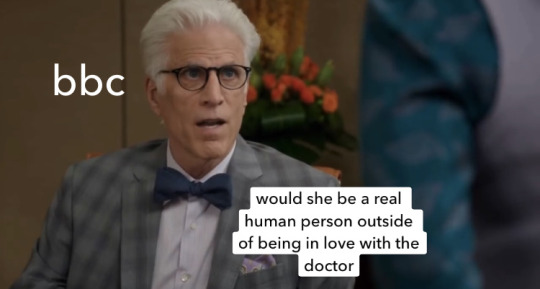
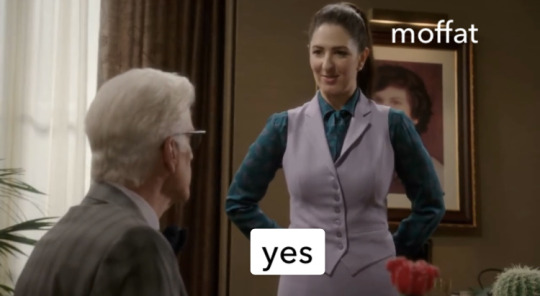
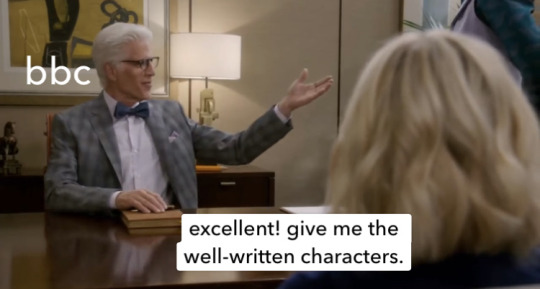
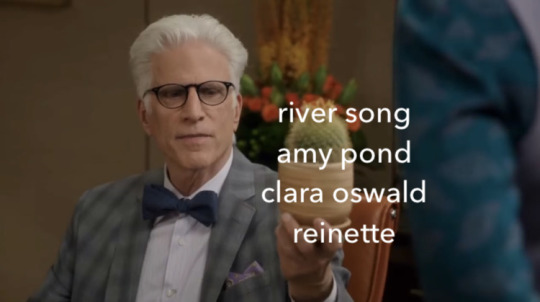
this has been sitting in my drafts for 2 years because i know i'm gonna get hate mail about it. oh well. this is for you, RTD truthers
#doctor who#doctor who rtd era#rtd era#dw rtd era#rtd era dw#anti moffat#dw#my post#listen i don't hate these characters i think they had the potential to be amazing. but moffat fucked them up beyond repair#also there's a grammar mistake but i didn't notice til just now and i'm too lazy to edit it 👍🏻#should say 'who* does not need romance or....' etc#not 'that'#as the sentence is referring to a person
199 notes
·
View notes
Text
does anybody remember how in 'sherlock is garbage', one of the core arguments is that the show doesn't do its mystery element justice, because the audience isn't actually given the necessary information to solve the mystery, sherlock just gives a convoluted explanation at the end that viewers never could have guessed? that same thing happens in house md all the damn time and it's a nitpick of mine that house is held up as an example of a good mystery show in that same video
#thunder watches house md#edit: to be clear i'm not really criticising either show. i like house md a whole lot more than bbc sherlock#i'm criticising the video essay. not even hbomberguy himself cuz that vid was made a decade ago#its so iconic and ive watched it far too many times. formative media analysis for moffat properties and chock fully of logical fallacies
29 notes
·
View notes
Text
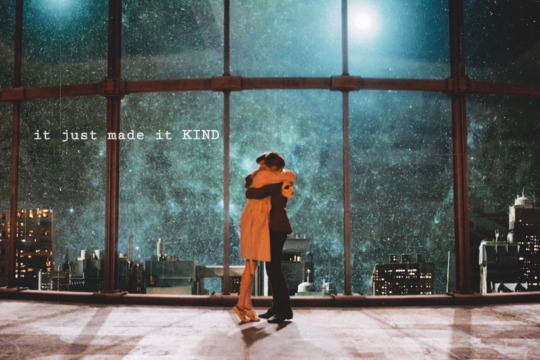
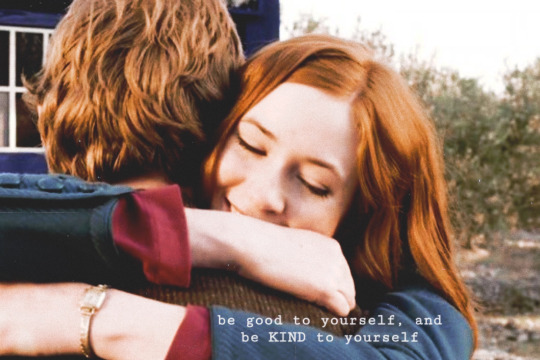
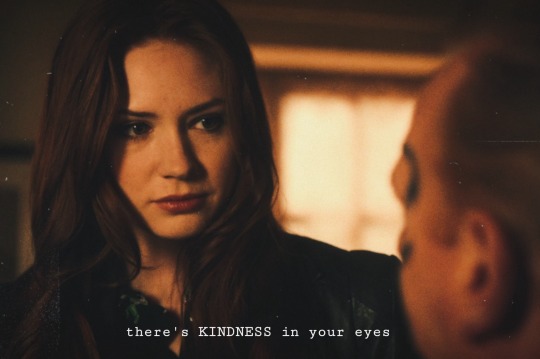
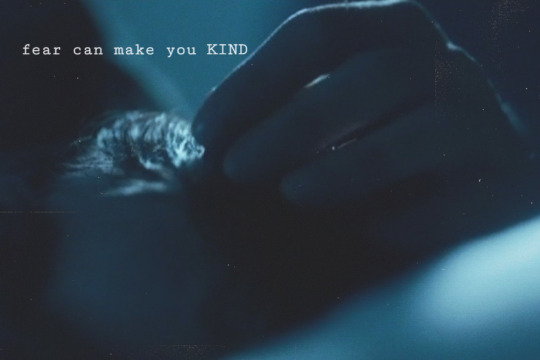
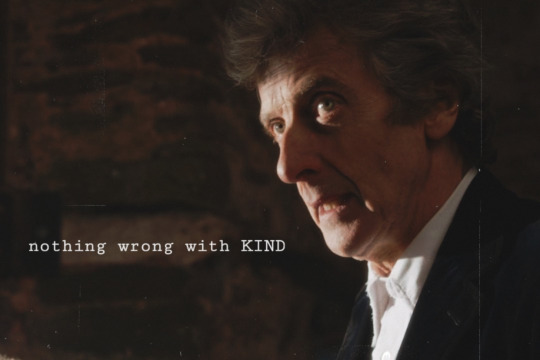
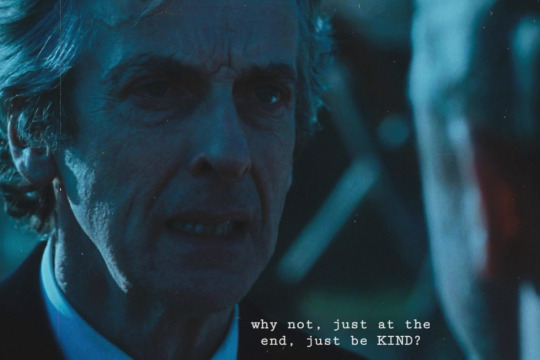

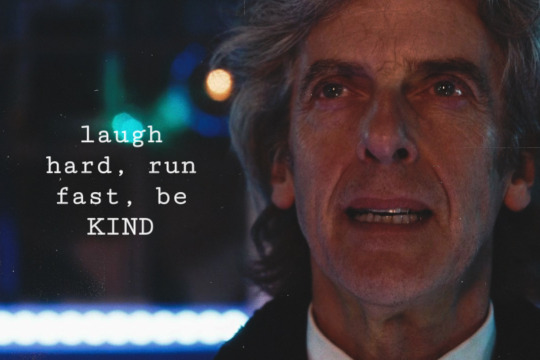
Love how often the importance of being kind is brought up throughout this era❤️
#and this isn’t even all of them#doctor who#amy pond#clara oswald#twelfth doctor#moffat era#type: edit#mine#lionheartamelia
8 notes
·
View notes
Text
— the woman they were only with out of guilt and duty, everyone.
y'all seeing this first because tiktok kept on muting it so now I'm annoyed but anyways yes PELEPENS 🦅🇵🇭🦅🇵🇭 also something went wrong with the text but i can't figure it out but i hope y'all enjoy it
@ssa-kitsune1310 @croxxbunx @agirlwhowaited @lotus-ignis @mercysong-tardis @enemiestorivalstolovers @sparklybouquetheart @lazyreinelle @florida3exclamationpoints @bubbletune6 @lexierius11verse @littlesparkleshark @capybaraonabicycle @jennyandvastraflint @seaweedstarshine @jayliescreations @impossiblesongs and more people
#doctor x river#river song#eleventh doctor#doctor who#the doctor#yowzah#doctorriver#twelfth doctor#eleven x river#twelve x river#river x doctor#11th doctor#moffat era#12th doctor#11 x river#12 x river#my edits#multo#cup of joe#she's literally the doctor's multo#nuwho#dr who#dwedit#dw#river x eleven#river x twelve
59 notes
·
View notes
Text
the part of the episode where the toymaker was like “look what horrible things and sad endings happen to the companions” and they were just straight up all moffat made me scream laughhhhhhfjfh
#YEAH. I KNOW. COMPELLING ISNT IT.#ISNT IT DRAMATICALLY INTERESTING. WHEN BAD THINGS HAPPEN#doc who#and the fact he was like… you dont need to care about the chibnall companions idk them. Thanks 👍#im wheezing thinking about capaldi watching this episode completely aghast#edit if u are rbing this to be mad at moffat. that is your prerogative but it was not my intention with this post lol. sorry
56 notes
·
View notes